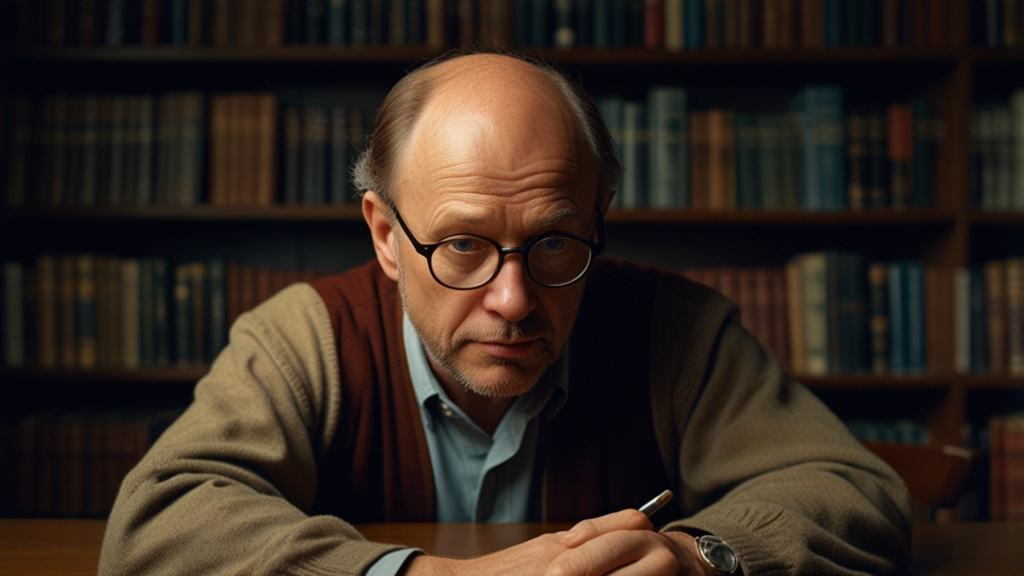Epistemology: Where Philosophy Meets Reality
Epistemology, often referred to as the theory of knowledge, is a fundamental branch of philosophy that delves into questions about what knowledge is, how it is acquired, and how we can be certain of its validity. The study of epistemology not only addresses abstract considerations but also intersects significantly with the practical aspects of human experience, thereby forming a bridge between philosophical thought and everyday reality.
Defining Knowledge
At the heart of epistemology lies the quest to define what constitutes knowledge. Traditionally, knowledge has been categorized as "justified true belief." This classic tripartite model asserts that for someone to "know" something, three conditions must be met: the belief in question must be true, there must be sufficient justification or evidence for the belief, and the individual must actually believe it. While this definition has served as a starting point for many epistemological inquiries, it has also been subject to rigorous scrutiny and debate.
The Gettier Problem
One notable challenge to the justified true belief model is known as the Gettier problem, introduced by philosopher Edmund Gettier in 1963. Gettier presented situations where individuals had beliefs that were justified and true, yet intuitively seemed not to be knowledge due to the presence of some element of luck or coincidence. These scenarios highlighted the shortcomings of the traditional model and prompted epistemologists to explore more refined definitions and understandings of knowledge.
The Gettier problem illustrates that even with justified true belief, knowledge can elude us if luck plays a crucial role in the justification process. This revelation compels us to rethink what it means to "know" something and pushes the boundaries of epistemological inquiry.
Sources of Knowledge
Epistemology also examines the various sources from which knowledge can be derived. These sources include:
- Perception: Knowledge acquired through sensory experience.
- Reason: Knowledge gained through logical deduction and rational thought.
- Introspection: Knowledge obtained by examining one's own conscious thoughts and feelings.
- Testimony: Knowledge received from others' reports and communication.
Each of these sources comes with its own set of challenges and potential pitfalls. For instance, perceptual knowledge can be influenced by optical illusions or faulty sensory input, while knowledge from testimony depends heavily on the credibility and reliability of the source.
Justification and Skepticism
A central concern in epistemology is the nature of justification. What counts as sufficient evidence for a belief? Philosophers have proposed various theories of justification, including foundationalism, which posits that certain basic beliefs provide the foundation for all other knowledge, and coherentism, which suggests that beliefs are justified if they cohere with a system of interrelated beliefs.
Skepticism, an enduring theme in epistemology, questions the very possibility of knowledge. Skeptics argue that for any belief, there can always be a reason to doubt its truth. This skeptical challenge forces epistemologists to account for how we can claim to know anything with certainty.
Skeptical arguments sharpen our understanding of knowledge by constantly probing its limits and challenging the assumptions we often take for granted. They remind us that doubt is an integral part of the philosophical method, driving us to deeper and more critical analyses.
Epistemology in the Real World
While epistemology is rooted in philosophical discourse, its implications extend far beyond academic debate. Understanding knowledge and its limitations is crucial in various fields, including science, law, education, and everyday decision-making. In science, the criteria for justified belief are vital for distinguishing between credible theories and pseudoscience. In law, standards of evidence determine the outcomes of trials and the administration of justice. In education, pedagogical approaches depend on epistemological assumptions about how knowledge is best acquired and transferred.
Moreover, in an age of information overload, epistemological awareness is more important than ever. The ability to critically assess the credibility of sources, distinguish between fact and opinion, and recognize the influence of cognitive biases is essential for navigating the complex landscape of contemporary information.
Conclusion
Epistemology serves as a crucial intersection where philosophy meets reality. By exploring the nature, sources, and limits of knowledge, it provides valuable insights that inform not only philosophical thought but also practical aspects of human life. As we confront the challenges of an increasingly complex world, the tools and perspectives offered by epistemology equip us to seek truth, understand the foundations of our beliefs, and make informed, rational decisions.
In understanding knowledge, we come to understand not just the world around us, but our own place within it. Epistemology, in its pursuit of truth, enriches both our theoretical frameworks and our day-to-day experiences.










